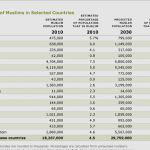Yippee Skippee…..Loretta Lynch got one right it testimony.
Attorney general: Law ‘does not allow’ Gitmo detainees in the US
The Hill: The Obama administration is legally prohibited from bringing detainees from the detention facility at Guantanamo Bay, Cuba, to the U.S., Attorney General Loretta Lynch acknowledged on Tuesday, even as the White House searches for ways to close the facility.
“With respect to individuals being transferred to the United States, the law currently does not allow that,” Lynch told the House Judiciary Committee. “That is not, as I am aware of, going to be contemplated, given the legal prescriptions.
“Certainly it is the position of the Department of Justice that we would follow the law of the land in regard on that issue.”
The attorney general noted that President Obama has said he will sign a new defense policy bill that includes additional restrictions on Guantanamo Bay, including new limits on where men at the detention camp can be sent abroad.
Still, Lynch maintained that closing the 13-year-old detention facility “is something that is a part of the administration’s policy.”
“The Department of Justice is committed to fully following that, and the closure of Guantanamo Bay is being carried out in compliance with that law,” she added.
Despite Lynch’s comments, the Obama administration is actively looking for places in Colorado and other states to relocate dozens of detainees from the facility, as part of its broader effort to close the detention facility. Of the 107 men detained at Guantanamo Bay, 48 have been cleared for release to other countries and the administration hopes they will be placed abroad.
This weekend, five Yemeni detainees at the facility were transferred to the United Arab Emirates.
The remaining detainees would need to be placed somewhere in the U.S. The list of possible facilities includes a maximum-security federal prison in Colorado, as well as Fort Leavenworth, Kan., and the Naval Consolidated Brig in Charleston, S.C.
The president is believed to be releasing a formal plan to close Guantanamo Bay in coming weeks. It is sure to be met with vigorous opposition from Republicans, who worry that it would both entail releasing dozens of dangerous terrorists as well as endanger the communities surrounding the prisons of those who are reincarcerated.
“We would expect that to come relatively soon,” White House press secretary Josh Earnest said on Friday.
On Tuesday, Lynch told the House panel that no one had ever escaped out of a super-maximum security prison, which Democrats have used as evidence to support the president’s plan.
“I do not believe anyone has escaped from Supermax,” she said.
Rep. Randy Forbes (R-Va.), however, worried that the locations could nonetheless be placed on terrorists’ hit lists.
“If you brought terrorists from Guantanamo Bay and located them in a particular city in the United States, would it not be reasonable to conclude that that would enhance the likelihood that that city could be placed on one of these lists?” Forbes asked.
Further, Lynch was asked questions on refugees and email servers.
UPI: Lynch was asked about other issues during the hearing — such as police-related deaths, radical terrorism, the IRS investigation and Hillary Clinton’s use of a private email server when she was chief of the U.S. Department of State.
Lynch also discussed a recent plan by the administration to admit a number of Syrian refugees into the United States to aid in the European migrant crisis.
“Not only the Department of Justice but all of our agencies will make every effort to vet every refugee coming into this country,” she said. “Certainly there are challenges to that process.
“We do have the benefit of having that significant and robust screening process in place — a process that Europe has not been able to set up, which renders them much more vulnerable.”
The question and answer session followed a speech delivered by Lynch, which outlined Justice Department achievements and priorities.
“Our highest priority must always be the security of our homeland, and we are acting aggressively to defuse threats as they emerge,” she said. “We remain focused on the threat posed by domestic extremists.”







